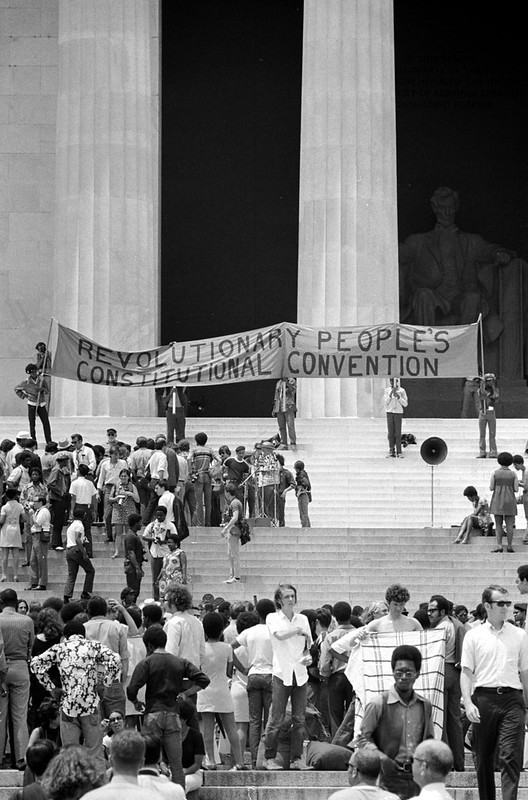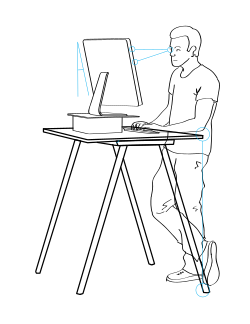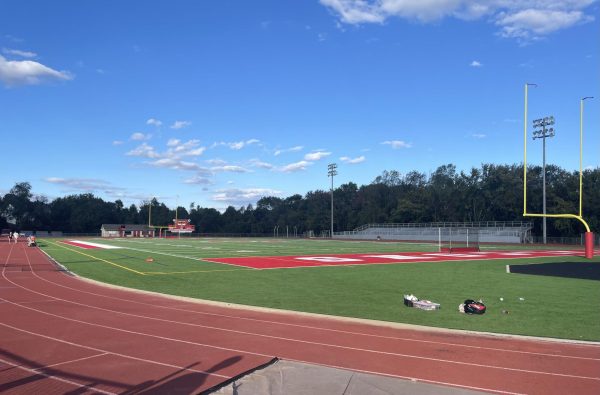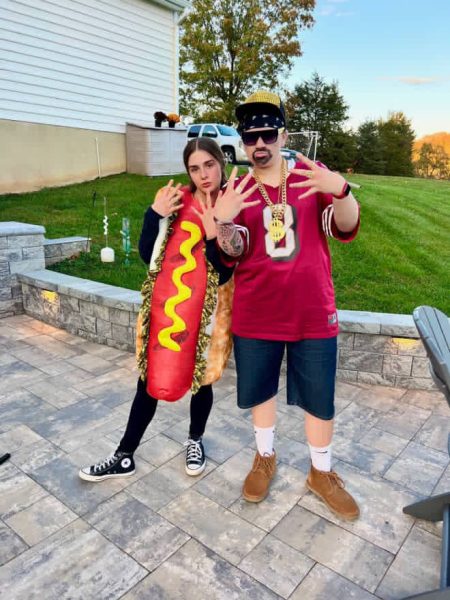Black History Month: The Black Panthers
Picture of a Black Panther rally on the steps of the Lincoln Memorial, 1970.
February is Black History month, a month dedicated to celebrating the resilience of Black people in the face of centuries of oppression. This article is about the Black Panther Party, which heeded Malcolm X’s call for liberation by “any means necessary.”
In 1966, Huey P. Newton and Bobby Seale founded the Black Panther Party, a revolutionary Marxist Black power group, in Oakland, California. The group would later spread throughout the U.S. Newton and Seale strongly believed that Black people had a right to defend themselves from oppression, and were big supporters of the Second Amendment, the right to bear arms. Newton and Seale wrote the Ten Point Program, a list of ten demands, after creating the party. The Ten Point Program called for, among other things, community control over the means of production and housing, an end to police brutality, freedom for Black prisoners, and an end to “the robbery by the Capitalists of our Black community.”
The Black Panther Party ran many survival programs to help empower marginalized communities that were living in poverty, including self-defense classes, health clinics, a free ambulance program, free clothing, sickle cell anemia testing, and free breakfast for children. The Panther’s free breakfast program was the most successful, feeding more than 20,000 children in 1969. The National School Lunch Program even admitted that the Panthers fed more children than the state of California did.
Unlike other Black nationalist groups at the time, the Panthers believed in class struggle and felt that poor whites were also oppressed by America’s capitalist system. The Panthers also believed Black capitalism would not end the oppression of African Americans. Fred Hampton, leader of the Chicago Black Panther Party, described this philosophy by saying, “We say you don’t fight racism with racism. We’re gonna fight racism with solidarity. We say we’re not going to fight capitalism with black capitalism, but we’re going to fight it with socialism.”
In 1969, Fred Hampton announced the creation of the Rainbow Coalition, a multi-ethnic coalition of groups. Groups in the Rainbow Coalition included the Black Panther Party, the Young Lords, and the Young Patriots. The Young Lords were a group of Puerto Ricans led by Cha Cha Jimmenez, and the Young Patriots were a group of white southerners that migrated to Chicago. All three of these groups represented communities that were living in poverty and were facing police brutality. Members of the Rainbow Coalition worked together to coordinate survival programs and stand in solidarity against racism and capitalism. The alliance between the Panthers and the Patriots shocked many, as it was surprising that Confederate-flag waving southerners would work with Black revolutionaries. The Panthers agreed to work with the Patriots under the condition that the group would denounce racism, which it did.
The effectiveness of the Black Panther Party and their revolutionary vision for society was seen as a threat by the American political establishment, which used authoritarian methods to crack down on the group. In 1969, J. Edgar Hoover, director of the FBI at the time, said that the Black Panther Party “represents the greatest threat to internal security of the country.” Hoover led a brutal crackdown on the Party involving infiltrations, surveillance, and arrests as part of the FBI’s COINTELPRO program, which was dedicated to crushing political dissent. Hoover was especially threatened by the Panther’s free breakfast program, and worked to destroy it. The FBI spread false rumors that the food was poisoned, and sent forged letters to prevent donations. On December 4th, 1969, Fred Hampton and Mark Clark were assassinated in a police raid that was coordinated by COINTELPRO and Cook County state attorney Edward Hanrhan. The Black Panther Party was severely weakened by these activities, and was officially dissolved in 1982.
The Black Panthers understood that Black liberation and the liberation of the working class requires serving the community and standing in solidarity with other oppressed people. Instead of waiting for politicians to act, the Panthers took steps on their own to alleviate poverty in their communities. That is why they were so threatening to the ruling class. To quote Fred Hampton, “You can kill a revolutionary, but you can never kill the revolution.”
Thanks for reading The Falconer. We're happy to provide you with award-winning student journalism since 1963, free from bias, conflicts of interest, and paywalls. We're able to continue with the generous support of our local community. If you're able, please consider making a donation. Any amount is incredibly helpful and allows us to pursue new and exciting opportunities.








